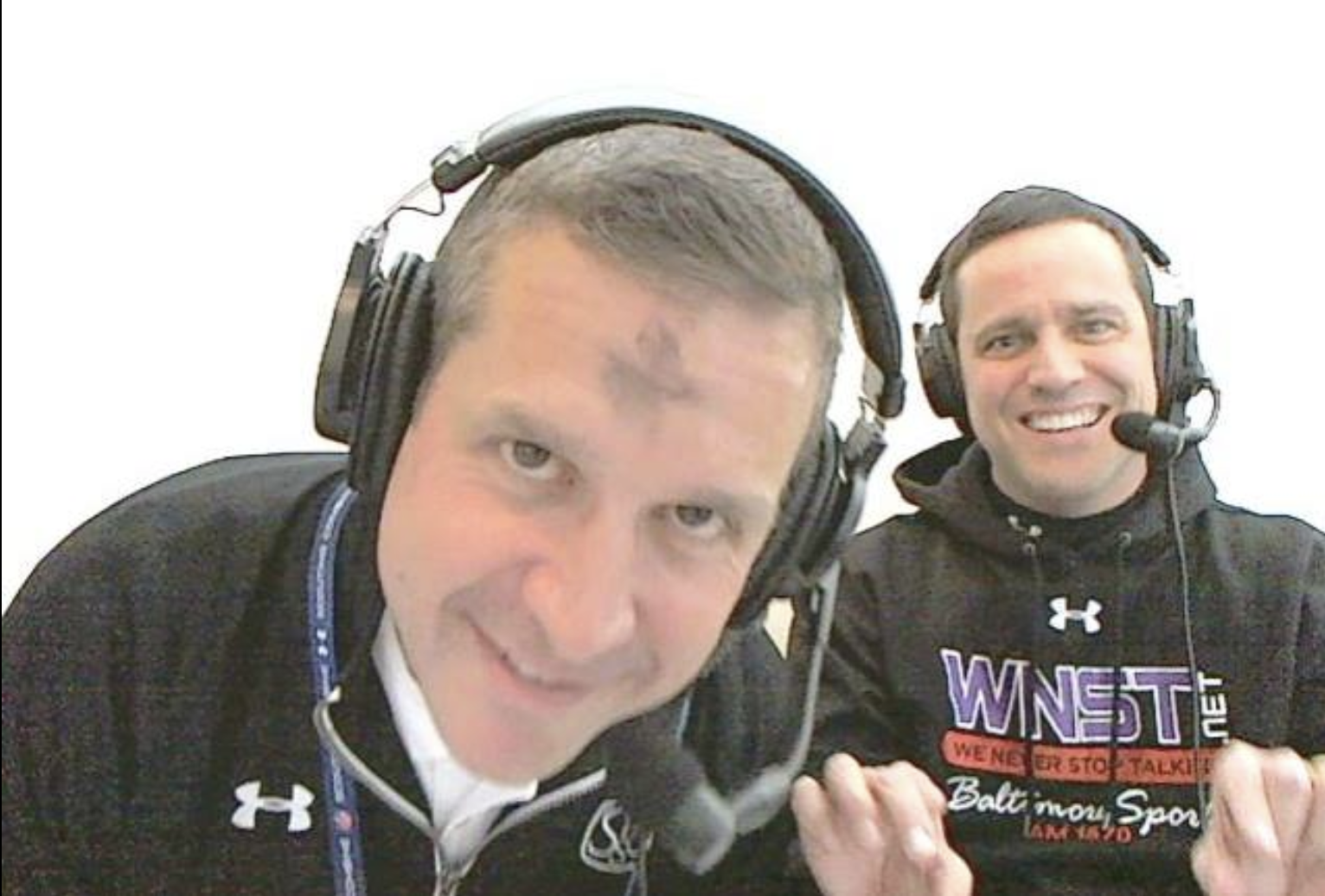By the time the 2008 squad made it to the fields at McDaniel College in Westminster, Harbaugh knew he was going to have a lot of work to do making the team see his philosophies and vision. And the remaining players who finished 5-11 the previous year were going to feel Harbaugh’s stick instead of Billick’s carrot.
In the 90-degree heat, Harbaugh made sure guys tongues were hanging out. He wasn’t afraid of them bitching or complaining. He almost wanted to make it too hard to see where the edge was with every player. It was almost like, “Let’s break these guys down and see who can handle it.”
In some cases, that even furthered the divide between the Rex Ryan the defense loved and the taskmaster that John Harbaugh was going to be in Baltimore.
By the summer of 2008, the Ravens came to camp with three quarterbacks – Kyle Boller, Troy Smith and Joe Flacco. The palpable difference on the field was Cameron, who saw the imbalance right away when the defensive players were outwardly disrespectful to the offense, which was trying to work and improve.
“Cam was a tough guy,” Harbaugh said. “He was a big enough personality to take on the defense. And our offense got some spine that summer and got tough.”
Cameron had no problem telling the defense: “Back up, shut up and play defense.”
Harbaugh had a ballyhooed confrontation with Jarret Johnson at one point early in their relationship and he was one of the better “team first” soldiers in purple. The only problem in the early days of Harbaugh’s reign was that “team” usually implied the defensive unit when it was spoken in the defensive huddle. It was Harbaugh’s heavy task of solving that major psychological, but very real, issue of bringing the team together as one.
“Sure, there were guys in our first meeting sitting sideways,” Harbaugh said. “I was trying to create change. It wasn’t easy. I was trying hard to sell them on my way, but then it just became a pride point. I never backed down from anything I believed to be right. And once they found out that I wasn’t going to change my values – and that we could win this way — I started to get buy-ins.”
For all of the sweet, nice, All American guy looks wholesome John Harbaugh brings at the podium, there’s a ball cap and whistle side of Coach Harbaugh on the back fields in practice that brings a prickly, aggressive ball coach out in the eyes of his players or anyone within earshot.
Anyone who has spent time around Harbaugh would tell you that he has an “edge” about him. No one ever doubts his sincerity or the integrity of his vision, but he can be as tough, stern and emotional as any coach in the NFL.
As one member of the Ravens organization said early: “He almost wants confrontation so he knows where you stand and what you believe in. I think it’s the same relationship he has with his brother. He’s just so ultra competitive that he can’t help it.”
This was immediately apparent to the media with the first series of almost awkward press conferences and lines of questioning, especially once the season began. Harbaugh comes from the Andy Reid school of media relations, and no one has it tougher than the coach of the Philadelphia Eagles amidst the toughest and most legendarily raucous fan base in the NFL.
In media circles, Harbaugh quickly earned his reputation as “Hard Ball.” Or even in some cases, “Hard Ass.”
This is when Harbaugh began channeling his inner Bo Schembechler or at least a little Bill Belichick when dealing with the media. There were strange moments of silence, questions that made Harbaugh bristle and retort and in some cases even go on the attack like after a game in Cincinnati when he shot back at a reporter, “Where are you from?” after a simple question about an offensive strategy.
Part of the “old school” in Harbaugh was his view on the media and access and the exchange of any information that could compromise his football team. Injuries, questions about plays, formations, packages or anything tactical not only ruffled his feathers, but would also often garner some heated exchanges.
Harbaugh didn’t trust the media an iota. He didn’t want to be asked questions about his game plan or injuries. It was a strategic issue and a private matter. Every facet of Harbaugh’s game plan was treated as a top secret. And, in general, it was all very new to him and especially anything that felt like second-guessing from the media or fans would be met with resistance.
For all of his bravado and toughness, Harbaugh was incredibly sensitive to criticism or doubters and used it as ammunition right through January 2013 when the Ravens were underdogs at every step on their road to a Super Bowl 47 win in New Orleans.
As a special teams coordinator for most of his career, Harbaugh didn’t deal with a mob scene or reporters at his locker after an Eagles game or do a bunch of podium visits with questions coming from every angle about everything. And most of the time, the media is looking for opinions on players and situations or are asking for evaluations and observations. Harbaugh just doesn’t like saying anything that could or would be used against him later – tactically or otherwise.
Certainly, over the first five years in Baltimore he made major strides with his media responsibilities and was viewed far more favorably than his brother during the Super Bowl XLVII week festivities. And he was even an engaging guest on “The David Letterman Show” after the Super Bowl win. His first five seasons of nothing but winning football have made him very popular amongst the fans. Giving entertaining press conferences is not a part of Harbaugh’s makeup or personality, but he’s more likely to crack a joke in 2013 than he was in 2008 when every briefing was treated like a bit of a nuisance.


























